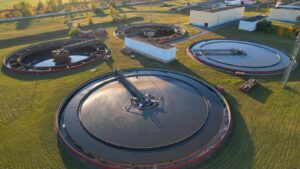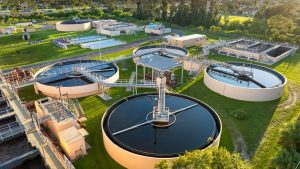Have you ever wondered how industrial processes can purify water while protecting the environment? There needs to be a balancing act. This is where ‘Industrial Reverse Osmosis (RO) Systems’ might hold the answer! These advanced water treatment solutions do not just remove impurities; they also redefine sustainability in industries. But how far does their environmental influence stretch?
Let us dive deeper to uncover the transformative environmental benefits of using an Industrial Reverse Osmosis System in the water treatment industry.
Let us dive deeper to uncover the transformative environmental benefits of using an Industrial Reverse Osmosis System in the water treatment industry.
We will look into
- What is an Industrial Reverse Osmosis System?
- 5 Benefits of Using an Industrial Reverse Osmosis (RO) System in the Water Industry
- Reduction in Water Wastage
- Minimised Contaminant Release
- Sustainable Water Reuse
- Improved Water Quality
- Support for Renewable Energy
3. Enhancing Industrial Reverse Osmosis Systems Using Robust Technology
What is an Industrial Reverse Osmosis System?
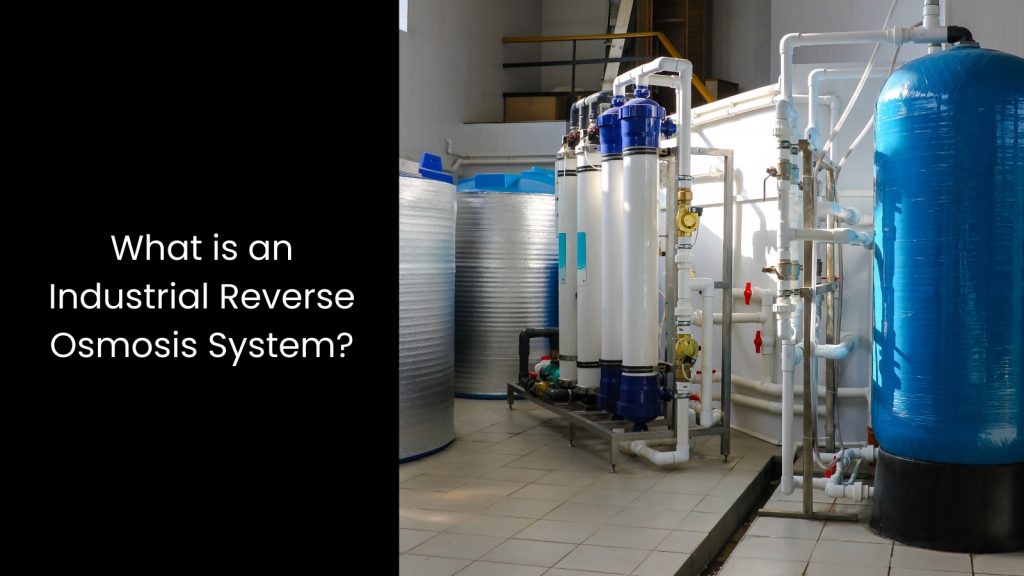
- An industrial reverse osmosis system offers a powerful solution for water treatment in various industries, effectively reducing 97-99% of total dissolved solids (TDS) in water. This system forces water with high TDS levels through a semi-permeable membrane under pressure, separating clean water, known as product water, from impurities.
- Dissolved solids and other particles remain behind and flush away, ensuring the membrane stays clean and functional. Industries such as food and beverage, power generation, manufacturing, oil and gas, and high-purity water production mainly rely on industrial RO systems to maintain process standards, improve product quality, and extend equipment life.
- However, properly sizing the system matters when deploying, as undersized units fail to meet water demands, while oversized ones waste resources and space.
- This advancement is trending in the water industry, and many facilities tend to pair industrial RO systems with water softeners to prevent scaling in challenging water regions, protecting the system’s efficiency and durability. Unlike natural osmosis, reverse osmosis uses pressure to push water from a highly concentrated solution to a lower concentration, offering a controlled and efficient water purification process.
- This method ensures optimal performance in industrial applications, supporting sustainability and reliability in water treatment. So, there is no doubt that industrial RO systems stand out for their versatility, advanced design, and ability to deliver high-purity water for demanding processes.
5 Benefits of Using an Industrial Reverse Osmosis (RO) System in the Water Industry
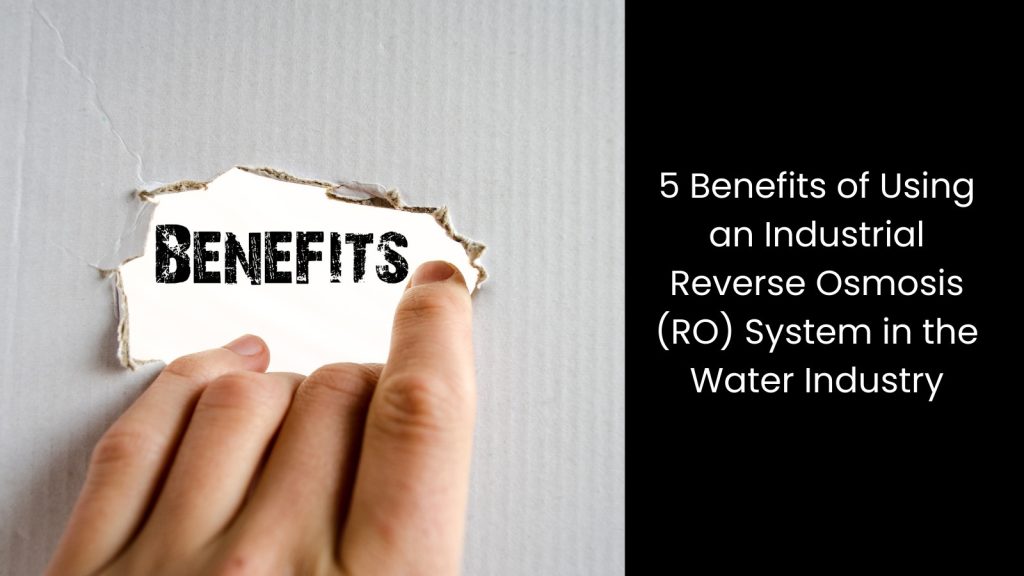
Reduction in Water Wastage
This is undoubtedly one of the positive impacts of an industrial RO system in water treatment, as it plays a vital role in reducing water wastage and promoting sustainability.
These systems reclaim and purify wastewater, turning what would typically be discarded into reusable, high-quality water. This process minimises the strain on freshwater resources and supports efficient water conservation efforts.
As mentioned, many industries, such as manufacturing, power generation, and food processing, produce significant amounts of wastewater. Industrial RO systems treat this wastewater by removing dissolved solids, contaminants, and impurities, making it suitable for reuse in various processes. This not only cuts down on water consumption but also reduces the environmental footprint of industries.
Adequate wastewater treatment through RO systems contributes to long-term environmental benefits, as it reduces the need for freshwater extraction, which can deplete natural resources and harm ecosystems. Moreover, this approach lowers the volume of untreated waste discharged into the environment, protecting aquatic habitats from pollution.
Water facilities using industrial RO systems also align with sustainable development goals by reducing their dependency on scarce water supplies while maintaining operational efficiency.
These systems reclaim and purify wastewater, turning what would typically be discarded into reusable, high-quality water. This process minimises the strain on freshwater resources and supports efficient water conservation efforts.
As mentioned, many industries, such as manufacturing, power generation, and food processing, produce significant amounts of wastewater. Industrial RO systems treat this wastewater by removing dissolved solids, contaminants, and impurities, making it suitable for reuse in various processes. This not only cuts down on water consumption but also reduces the environmental footprint of industries.
Adequate wastewater treatment through RO systems contributes to long-term environmental benefits, as it reduces the need for freshwater extraction, which can deplete natural resources and harm ecosystems. Moreover, this approach lowers the volume of untreated waste discharged into the environment, protecting aquatic habitats from pollution.
Water facilities using industrial RO systems also align with sustainable development goals by reducing their dependency on scarce water supplies while maintaining operational efficiency.
Minimised Contaminant Release
Release of contaminants is the worst fear of industries when it comes to managing wastewater, but industrial reverse osmosis systems provide a highly effective solution to tackle this challenge.
These systems remove harmful contaminants from water, preventing pollutants from entering natural water bodies and damaging ecosystems. Industrial processes usually generate wastewater filled with dissolved solids, heavy metals, organic compounds, and other toxic substances. RO systems effectively filter out these impurities, ensuring cleaner water for reuse or safe disposal. This not only protects local aquatic habitats but also reduces the risk of contamination spreading to soil and groundwater reserves.
Industries like manufacturing, food and beverage, and power generation benefit greatly from this technology, as it allows them to meet strict environmental standards while maintaining efficient operations. With industrial RO systems, facilities significantly lower their ecological footprint by controlling the release of hazardous waste. The semi-permeable membranes in these systems act as advanced barriers, capturing contaminants and separating them from purified water. This treatment method ensures high-quality water output and supports environmental preservation.
Another fact is that these RO systems also reduce the need for traditional chemical treatments, which can leave harmful residues and contribute to secondary pollution. Instead, they provide a more sustainable and environmentally friendly approach to water purification.
These systems remove harmful contaminants from water, preventing pollutants from entering natural water bodies and damaging ecosystems. Industrial processes usually generate wastewater filled with dissolved solids, heavy metals, organic compounds, and other toxic substances. RO systems effectively filter out these impurities, ensuring cleaner water for reuse or safe disposal. This not only protects local aquatic habitats but also reduces the risk of contamination spreading to soil and groundwater reserves.
Industries like manufacturing, food and beverage, and power generation benefit greatly from this technology, as it allows them to meet strict environmental standards while maintaining efficient operations. With industrial RO systems, facilities significantly lower their ecological footprint by controlling the release of hazardous waste. The semi-permeable membranes in these systems act as advanced barriers, capturing contaminants and separating them from purified water. This treatment method ensures high-quality water output and supports environmental preservation.
Another fact is that these RO systems also reduce the need for traditional chemical treatments, which can leave harmful residues and contribute to secondary pollution. Instead, they provide a more sustainable and environmentally friendly approach to water purification.
Sustainable Water Reuse
Industrial RO systems certainly offer a solution to global water challenges. Let us explain this mechanism.
These systems treat wastewater to produce high-quality water that industries, agriculture, and municipalities can reuse for various applications. Treated water from RO systems supports sustainable water management by reducing the demand for freshwater extraction and lowering the strain on natural water resources. In industries, this reclaimed water can replace freshwater for processes such as cooling, cleaning, and manufacturing, ensuring efficient resource utilisation. Farmers can use the treated water for irrigation in agriculture, improving crop yields without depleting groundwater reserves. Municipalities also benefit by reusing purified water for landscaping, cleaning, and other non-potable purposes.
Industrial RO systems help industries lower their environmental impact and align with eco-friendly practices by reducing wastewater discharge and maximising resource efficiency. The semi-permeable membranes in these systems remove contaminants, ensuring that reclaimed water meets stringent quality standards. This process not only conserves water but also prevents untreated waste from polluting ecosystems.
Sustainable water reuse through industrial RO systems helps achieve long-term environmental benefits, such as protecting aquatic habitats, preserving biodiversity, and supporting the circular economy.
These systems treat wastewater to produce high-quality water that industries, agriculture, and municipalities can reuse for various applications. Treated water from RO systems supports sustainable water management by reducing the demand for freshwater extraction and lowering the strain on natural water resources. In industries, this reclaimed water can replace freshwater for processes such as cooling, cleaning, and manufacturing, ensuring efficient resource utilisation. Farmers can use the treated water for irrigation in agriculture, improving crop yields without depleting groundwater reserves. Municipalities also benefit by reusing purified water for landscaping, cleaning, and other non-potable purposes.
Industrial RO systems help industries lower their environmental impact and align with eco-friendly practices by reducing wastewater discharge and maximising resource efficiency. The semi-permeable membranes in these systems remove contaminants, ensuring that reclaimed water meets stringent quality standards. This process not only conserves water but also prevents untreated waste from polluting ecosystems.
Sustainable water reuse through industrial RO systems helps achieve long-term environmental benefits, such as protecting aquatic habitats, preserving biodiversity, and supporting the circular economy.
Improved Water Quality
These systems remove toxins, heavy metals, and various pollutants from water, ensuring cleaner and safer water for human consumption and ecological balance. You know that industries usually produce wastewater laden with harmful substances that can harm the environment if released untreated.
Industrial RO systems tackle this issue by filtering out contaminants through semi-permeable membranes, delivering high-purity water for reuse or safe discharge. This enhanced water quality supports aquatic ecosystems, reduces the risk of soil contamination, and prevents hazardous substances from entering food chains.
Water plants relying on industrial RO systems can quickly achieve operational excellence while meeting strict environmental regulations. The improved water quality benefits human health by reducing exposure to pollutants that can cause severe health issues.
Industrial RO systems tackle this issue by filtering out contaminants through semi-permeable membranes, delivering high-purity water for reuse or safe discharge. This enhanced water quality supports aquatic ecosystems, reduces the risk of soil contamination, and prevents hazardous substances from entering food chains.
Water plants relying on industrial RO systems can quickly achieve operational excellence while meeting strict environmental regulations. The improved water quality benefits human health by reducing exposure to pollutants that can cause severe health issues.
Support for Renewable Energy
These systems offer a sustainable solution for water treatment while supporting renewable energy adoption, making them an eco-friendly choice for industries.
These systems can integrate seamlessly with renewable energy sources like solar, wind, or hydropower, reducing dependency on fossil fuels and significantly lowering carbon emissions. This integration aligns industrial water treatment processes with global efforts to combat climate change and promote clean energy. Facilities using renewable energy to power RO systems achieve both operational efficiency and environmental responsibility, creating a dual benefit that enhances sustainability.
The ability to couple with renewable energy ensures that RO systems operate with a smaller carbon footprint, which directly benefits the environment. Lower emissions reduce air pollution, contributing to cleaner ecosystems and improved public health. This approach also aligns with the goals of energy-efficient industries striving to meet environmental compliance standards.
Industries can further optimise their sustainability by pairing industrial RO systems with energy recovery devices that maximise resource use and minimise waste. Combining advanced water purification technology with renewable energy underscores the potential of RO systems to revolutionise water management while supporting a greener future.
These systems exemplify how innovation can drive environmental stewardship and promote long-term ecological health in the industrial sector.
These systems can integrate seamlessly with renewable energy sources like solar, wind, or hydropower, reducing dependency on fossil fuels and significantly lowering carbon emissions. This integration aligns industrial water treatment processes with global efforts to combat climate change and promote clean energy. Facilities using renewable energy to power RO systems achieve both operational efficiency and environmental responsibility, creating a dual benefit that enhances sustainability.
The ability to couple with renewable energy ensures that RO systems operate with a smaller carbon footprint, which directly benefits the environment. Lower emissions reduce air pollution, contributing to cleaner ecosystems and improved public health. This approach also aligns with the goals of energy-efficient industries striving to meet environmental compliance standards.
Industries can further optimise their sustainability by pairing industrial RO systems with energy recovery devices that maximise resource use and minimise waste. Combining advanced water purification technology with renewable energy underscores the potential of RO systems to revolutionise water management while supporting a greener future.
These systems exemplify how innovation can drive environmental stewardship and promote long-term ecological health in the industrial sector.
Enhancing Industrial Reverse Osmosis Systems Using Robust Technology
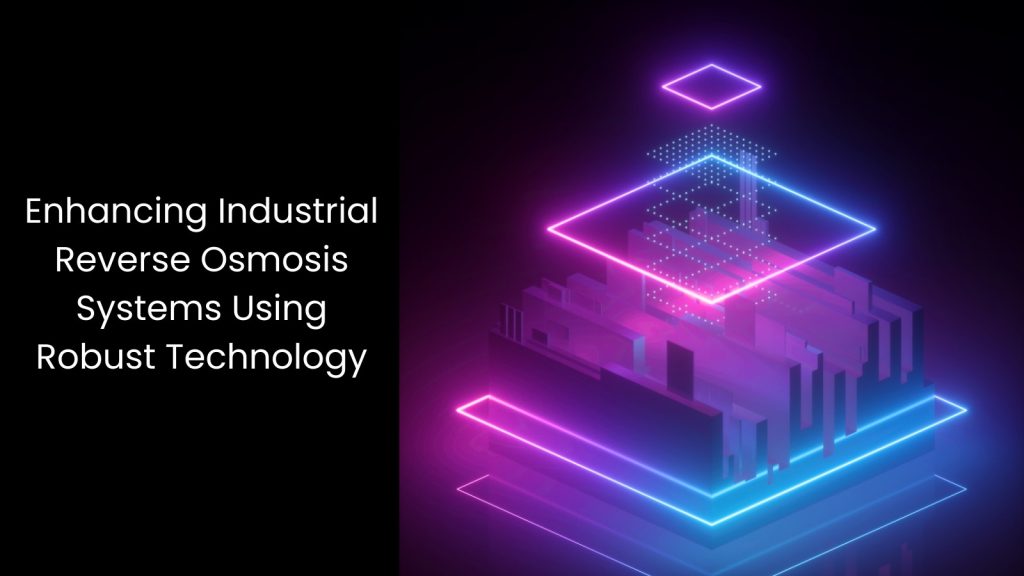
Industrial reverse osmosis systems, coupled with AI-driven asset management solutions, redefine what is possible in water treatment! With these advancements in the technological world, you can now experience smarter monitoring, predictive maintenance, and unparalleled operational efficiency. This integration is not just a step forward; it is a leap into a sustainable, tech-powered future where every drop of water is treated with precision and care.

